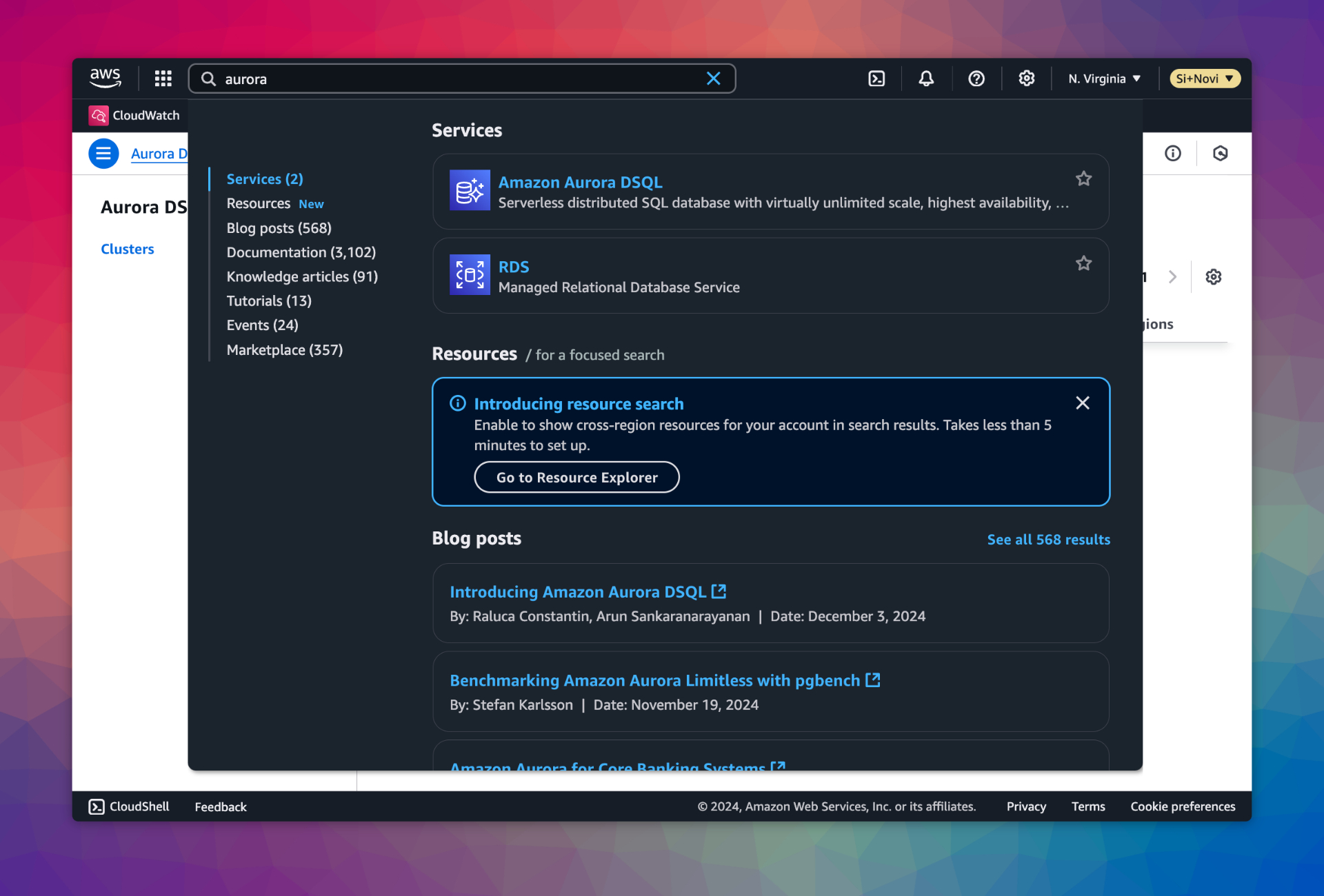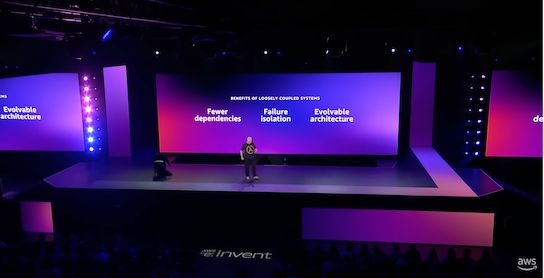Exploring Amazon Aurora Distributed SQL: our first impressions
Amazon Aurora Distributed SQL (DSQL) was just unveiled at re:Invent 2024 earlier today, and we're buzzing with excitement about what this new offering could mean for businesses running growing, global, web applications. AWS promises a service that marries global scalability with the convenience of serverless architecture, and while it's early days, the possibilities are thrilling.
What is Aurora DSQL?
At its core, Aurora DSQL builds on the familiar Aurora platform but introduces groundbreaking features designed for distributed workloads. AWS highlights its active-active multi-region availability and distributed SQL architecture, which promise robust fault tolerance and seamless global operations.
Hidden in there somewhere is the fact that a DSQL cluster doesn't require a Virtual Private Cloud (VPC) and other network gubbins. Which is amazing.
The expansion of PostgreSQL compatibility is another highlight. PostgreSQL's popularity among developers makes this a welcome feature, potentially simplifying cloud migrations and development for businesses already using relational databases and open-source tools.
Why DSQL caught our attention
We've spent plenty of time working with relational SQL databases through RDS, as well as DynamoDB for schemaless data storage and scalability. Both have been great in their own right, but we've always felt there was a bit of a gap - something that could offer the best of both worlds: the querying power and familiarity of SQL, combined with the scalability and flexibility of serverless.
Aurora Serverless seemed like a great option for a while, offering auto-scaling without the need for manual provisioning. However, it still required being within a VPC, which didn't quite fit with the event-driven, fully-serverless architecture that we were hoping for. This added complexity and for us, made the service less useful than it could have been.
So what really stands out to us is the truly serverless architecture. I noticed the separation in the AWS console of DSQL from the RDS platform which runs the other Aurora services is a telling sign of the differing nature of DSQL. At a simplistic level the choice now seems to be RDS || DSQL || DynamoDB which is an exciting concept. Hooking up a Lambda to a DSQL cluster will be my first experiment to see how this feels in comparison to connecting to an RDS or Aurora cluster.
The potential for Aurora DSQL to address scaling challenges is particularly intriguing. For businesses running web applications with unpredictable traffic, the serverless, distributed model could offer the right balance of performance and cost. Imagine a web app serving users globally with minimal latency or downtime, but pulling big SQL queries and working with relational data, and scaling to nothing when unused.
The cost efficiency of paying only for what you use remains a hallmark of Aurora, but DSQL could take this to another level by removing the need for overprovisioning resources in multi-region setups. It also hints at a future where SMBs can compete with larger enterprises in delivering reliable, scalable services.
the separation in the AWS console of DSQL from the RDS platform which runs the other Aurora services is a telling sign of the differing nature of DSQL
Questions we're asking
While we're excited about the potential, we still have a few questions. How does the pricing really stack up for global deployments? What's the learning curve when it comes to adopting a distributed SQL model? Is the easy-to-use developer experience really just that? Which use cases will best suit DSQL?
What's next?
For now, Aurora DSQL feels like an evolution that could redefine how businesses think about scaling their database-driven web applications. We'll be digging deeper into its features as more details emerge and experimenting in our own Si Novi sandbox accounts. Whether it's about creating globally resilient web apps or optimizing costs with serverless flexibility, Aurora DSQL is a development we're eager to explore further.
As we learn more, we'll share updates and insights on how this service might fit into SMB strategies. If AWS's promises hold true, Aurora DSQL could be the start of a new era for accessible, high-performance database solutions. Stay tuned!






